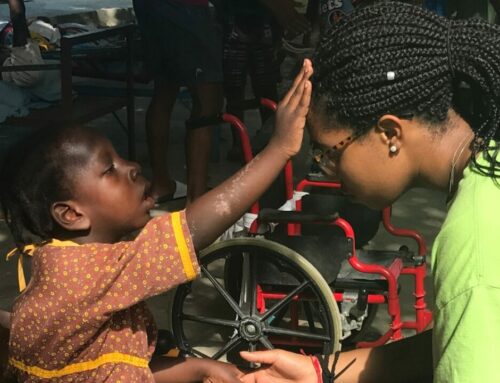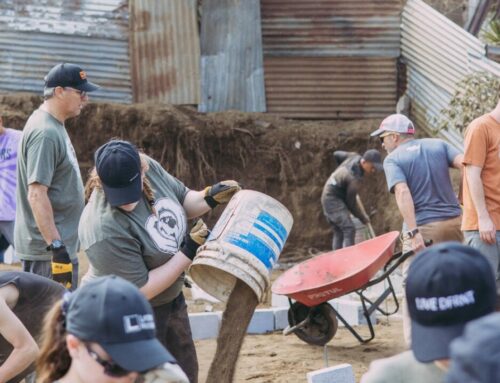Short-term mission trips are one of the best ways youth pastors can get their students involved in missions. There are many benefits to short term missions, including learning about other cultures, gaining leadership skills and growing spiritually. Successfully planning a trip requires time and preparation so that your students have the best experience possible. Use these tips to help you plan for a successful short term mission trip!
By following these seven steps, you will be able to successfully plan for an amazing short-term mission trip with your youth group!
Find your trip
There are a number of factors to consider when looking for youth group mission trips. Ideally, you want to pick an organization that aligns with your church’s beliefs to ensure your group mission trip experience is what you are hoping for.
When deciding on a date, be sure to give yourself plenty of time to plan and publicize the trip. Serving on a mission trip and being the hands and feet of Jesus is important for both youth and adults. But, many parents want young people to be back for school or other commitments. Make sure your mission trip will not conflict with other important events that you or your students may have.
You may want to make sure the mission trip is to a location that you can travel to easily. Remember, a trip that will take several days of travel will limit your time of serving the community.
Be sure to look into the area’s climate before choosing a trip that is in extreme weather. You don’t want your students to be uncomfortable for their entire stay, but you also don’t want them to miss out on important parts of the mission because they are too hot or cold!
Find out who is interested
Before planning, get a general idea of who is interested in going on the trip. Discuss the opportunity with them and get their feelings on what they think about it. You may be surprised by who expresses interest!
You will also want to gather volunteers to help plan. Look around your church for people who may want to help out in the planning process. Have a leadership team in place so you can work on the mission trip together.
You will need chaperones for your mission trip. You do not want your students to be unaccompanied, especially when traveling out of the country. Chaperones should be responsible adults who can help you care for your students and also help in completing service projects while on the trip.
Sign up
One of the most daunting steps of planning a mission trip is the commitment to go. Whether you are going with an organization like Mission Discovery, or you are planning to go on your own, there will come a time for commitment.
Lodging and travel partners require deposits or payment in full to ensure their service to your team. Ask about a refund policy and make sure you have plenty of time to plan your trip and set up all necessary bookings well before the date.
Prepare your team
A lot of preparation for a short term mission trip will happen on the home front. Before your students leave, you should schedule team meetings to talk about what they can expect while on their trip.
Right Now Media is a fantastic resource for developing your team and preparing them for mission trip opportunities. Mission Discovery offers free access to Right Now Media for anyone that signs up for one of our mission trips.
Your students may be able to participate in either service projects or teaching opportunities while abroad. Discuss with them how they might contribute and help them get prepared. If your group is traveling with an organization like Mission Discovery, you will want to go over expected schedules and rules.
Collect money
There are different ways a group can collect money for their mission trip. Some churches have a budget set aside to offset the cost of a trip for those that are going. Some parents may have enough money to send their child with your group. Other students may need help raising funds for the trip.
Be sure to have a transparent conversation with your students about how money is being collected. Discuss the costs involved and why donations are necessary. Find out if any of your team members or parents can offer assistance in paying for parts of the mission trip.
Ensure all mission trip details are in order
Besides the mission trip itself, there are a lot of other details involved with planning a mission trip. Assume nothing and double check any necessary paperwork.
Ask about things like passport or visa requirements, inoculations or medical releases from a doctor. You may need to have your students take a physical exam before going on their mission trip. Ask
Be sure to ask about whether you should set up a travel insurance policy and who is responsible for securing it.
Your students will need to have someone sign off on their participation on a mission trip. Make sure you have a paper copy of this permission slip in case you are asked about it during travel.
Whether you are driving to your mission trip location or flying, make sure your travel plans are taken care of.
Keep track of any forms you need to send to an organization, school or abroad so that nothing falls through the cracks. Double check every step of the process including completing paperwork, making deposits and filling out necessary documentation.
Plan your debrief sessions
Take time to debrief with your students after the mission trip. This will be a valuable experience as you process what happened on the trip and how it affected those who were there. The hope of every mission trip is that students will come away with a deepened relationship with God.
You should also use this time to talk about how you can contribute to communities in need when you are home. It will help your students to move forward after the trip and feel good about being involved with a project that made a difference.
Mission trips are valuable for students who may not have had an opportunity to visit another country or participate in volunteer work. Be sure your group is ready to go by checking all necessary plans and paperwork. You will then be able to focus on the mission trip without worrying about how your students are getting there or what they need to do when you get there.





